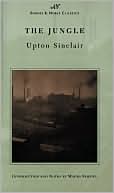Black Maps
John March walked away from his family’s merchant bank for the life of a rural deputy sheriff–a life that would explode in personal tragedy and professional disaster. Three years later, March is back in New York City, working as a private investigator and still running from his grief and guilt. When he takes the case of Rick Pierro, a wealthy investment banker threatened by blackmail, March is swiftly drawn into a web of Wall Street insiders and outcasts, and back to a world he thought he’d...
Search in google:
John March walked away from his family’s merchant bank for the life of a rural deputy sheriff–a life that would explode in personal tragedy and professional disaster. Three years later, March is back in New York City, working as a private investigator and still running from his grief and guilt. When he takes the case of Rick Pierro, a wealthy investment banker threatened by blackmail, March is swiftly drawn into a web of Wall Street insiders and outcasts, and back to a world he thought he’d left behind. The more he learns about Pierro’s connections to a notorious international bank that made billions in blood-money, the darker the terrain becomes. Soon March’s own life is in danger, as he follows a trail of blood and shattered lives to a ruthless and depraved extortionist.In this thrilling and intelligent debut, Peter Spiegelman illuminates the dark underside of the financial world and introduces one of the most compelling fictional detectives of the new millennium.Publishers WeeklyAfter a lengthy, but never boring, setup, Spiegelman's first novel pitches from one taut, suspenseful scene to another, with New York PI John March at the center but also including an impressive cast of allies, adversaries and interlopers. The author lays out the collapse of financial giant MWB (Merchant's Worldwide Bank) and the subsequent federal investigations in detail. March's friend, lawyer Michael Metz, hires him to help a client, an officer at a major investment bank. It appears that fallout from MWB's collapse has prompted a blackmailer to use information seemingly derived from MWB documents to threaten Metz's client with exposure that would ruin his career. Real or manufactured, this data would be damaging. March must be careful, of course, not to step on federal toes. From computers to shoe leather, March's dogged search is entertaining, plausible and ultimately dangerous. Nothing about this stylish, literate mystery reads like a debut, as Spiegelman handles the complex plot with verve and artfully sets the stage for a backstory with mere hints about the trauma that drove March from upstate cop to PI. John March is one of the most intriguing new PIs to come along in quite some time, and if this strong first outing is any indication, he should be in for a long and enjoyable run. (Aug. 17) Forecast: With a 75,000-copy first printing and its fascinating picture of the financial world, this first mystery is a likely candidate for extra printings. BOMC selection. Copyright 2003 Reed Business Information.
Chapter One\ Everyone was in a bad mood. It was a palpable thing in midtown, as pungent as the bus exhaust on the cold evening air and as loud as the traffic. The streets were awash in it. Cars and trucks and taxicabs were locked in mortal combat, surging forward by inches, then rocking to a halt, their drivers cursing and leaning on their horns, their passengers fuming. Surly streams of people poured from office towers and washed into the gridlock, adding their own fulminations to the angry grind. Sharp elbows and rude gestures were everywhere.\ Maybe it was the season that brought it on—a week before Thanksgiving, the cusp of the holidays. Maybe it was the prospect of Christmas shopping, or of all that family time, bearing down like a freight train. Maybe it was the gnawing obsession with this year’s bonus—assuming there was one—or the corrosive dwelling on the next round of layoffs. Maybe everyone was battle fatigued—edgy from the latest terror alerts, strung-out from life in the crosshairs. Or maybe it was just another hellish rush hour. Whatever, it was some nasty karma.\ At seven p.m. I was threading my way through these wretches, headed up Park Avenue toward 52nd Street. The intersection was a particular mess. Sawhorses and traffic cones were scattered across it, and in the middle of the street was a trench that belched steam. Steel plates only partly covered the excavation, and I wondered if anyone had yet disappeared into its depths. I crossed 52nd, threading between two taxis, and pushed against a wave of people into the lobby of Mike’s building. I crossed the marble floor to the guard station, produced half a dozen pieces of ID, waited while they called upstairs, signed in, and got on an elevator. I pressed 30, and the doors closed silently.\ Michael Metz is a partner at the law firm of Paley, Clay and Quick, and the firm’s biggest rainmaker. He’s also my friend, and has been since college, from the day we first chased each other around a squash court, vying for a spot on the team ladder. For the last couple of years, he’s also been my most regular employer. Mike’s got an eclectic practice—corporate work, entertainment, matrimonial, every now and then some criminal work. And I’ve done lots of different things for him— background checks, find-the-girlfriend, find-the-boyfriend, find-the-assets. But tonight, he’d said, was something different.\ The elevator doors opened with a sigh, and I stepped into Paley, Clay’s reception area. At this hour, in this season, it was dark and quiet. The front desk sat in a pool of light and looked like a mahogany tollbooth. It dwarfed the old guard dozing behind it. He yawned and rubbed his eyes as I approached.\ “John March to see Mike Metz,” I told him. He flipped slowly through the wrinkled papers on his clipboard and punched some numbers into the phone. He whispered into the handset, and told me in a voice I could barely hear to go in.\ I pushed through glass doors and walked down a broad corridor lined on one side by shelves of law books, and on the other by offices. The offices were mostly dark, though here and there I spotted some luckless associates and scowling paralegals. I turned a corner and passed a vacant conference room, an empty kitchen, and a small clutch of people staring anxiously at a copy machine. I walked through another set of glass doors into a region of larger offices, Oriental rugs, and dark wood paneling. Partner country.\ Mike stood at the end of the hallway, outside the double doors of his office. He was bent over his secretary’s desk, pen in hand, leafing through a thick file. He was, as always, impeccably turned out. He wore a navy suit, expertly cut to his lanky frame, a brilliant white shirt, and a tightly knotted tie, patterned with green and gold dolphins leaping on a field of royal blue. His cuff links were enamel hexagons in a blue that matched his tie. His cap-toed shoes were gleaming black. As a concession to the late hour, he had unbuttoned his jacket.\ He pulled a sheaf of papers from the file, set them on top of the folder, scrawled something on the top page, and put the whole pile in the center of his secretary’s spotless desk. He straightened to his full six-foot-four height and ran a hand through his sparse, dark hair. Mike is in his middle thirties, just a couple of years older than me, but he looks forty-something. The price of partnership, I guess. He still plays competitive squash, though, and the impenetrable calm and arctic patience that drove me nuts in college still carry him into the late rounds of every tournament he enters. They make him pure hell to face in a courtroom, too. He eyed my clothes.\ “You sort of dressed for the occasion,” he said. “Thanks.” Unlike Mike, I was not always impeccably turned out. According to him, several of his partners were sure I was a bicycle messenger. But now, in gray flannels, a black wool polo shirt, and a black leather jacket, I was well within the bounds of appropriate.\ “No visible tattoos, no piercings, and I unscrewed the bolts in my neck. What more could you ask?” I said. “Where’s your guy?”\ “In the conference room, but let’s talk a little first.” Mike leaned against the desk.\ “That would be good,” I said, “since you’ve told me exactly nothing about this.” I sat in his secretary’s chair.\ “There’s a reason. The guy is shaken up right now, and based on what he’s told me, he’s probably right to be. I’ve known him a long time, and he’s not usually a jumpy guy. But right now he’s scared and paranoid.”\ “Okay, he’s scared and paranoid, no different from most clients. But what’s his problem? And does he have a name?” Mike looked at me. A rueful grin came across his lean, sharp-featured face.\ “He does,” Mike answered, “but he’d rather I didn’t tell you what it is—or anything more about him—until he’s had a chance to size you up.” My eyebrows went up. “He wants to look you over. He wants to get a sense of you before he starts talking about his problems. Like I said, he’s scared. You have to bear with him.”\ “He understand that I’d actually be working for you on this?”\ “He understands. And I told him I’ve had a lot of experience with you, and that you’re smart and thorough and stubborn, and that you run faster and jump higher and have healthy teeth and a shiny coat, and probably some other lies too. But he’s jumpy.” Mike shrugged.\ “Let’s go,” I said, sighing, and I followed him into the conference room.\ The room was dim, lit only by the small ceiling lights that shone on the architectural prints ranged around the walls, and by the city lights that glowed through the bank of windows opposite the door. In the center of the room was an oval table in dark wood. A man was sitting at it, facing the door. On the table, next to him, was a small filing box. The man didn’t look scared and he didn’t look jumpy. He looked rich.\ He was in his early forties, with olive skin and black hair brushed straight back from a wide forehead. He had a broad chest and thick neck, and thick shoulders and wrists. His wide face was clean-shaven, with dark, deep-set eyes and a nose that looked like it might once have been broken. He had the start of a double chin and a slight blurriness to his jawline that might some day ripen into jowls. But it hadn’t happened yet. Now he was like a sleek, well-fed bear. And a well-dressed bear, too. He wore a shirt striped in several shades of blue, and a silk tie in a dark, solid red. At his cuffs were intricate gold knots. A gray suit jacket was slung over the chair next to him. He stared at me but said nothing.\ I sat down across the table from him. Mike shut the door, drifted over to the window, and stared out at the nighttime city. The man sat back, propped his elbows on the arms of his chair, and looked at me over the top of his steepled fingers. Then he rubbed his eyes with his fingertips and took a deep breath. And then we were all quiet for a while. Still looking out the window, Mike prompted him.\ “You had some questions for John.”\ “Yeah,” he answered after some thought. He slipped a thick silver pen from his shirt pocket and began to twirl it in his right hand. “Yeah. My first question is how long have you been doing this? Investigating.” His voice was surprisingly soft and had a trace of an accent. Brooklyn or Long Island.\ “Just over two years,” I answered. “I was a cop for seven years before that.”\ “In the city?” I shook my head.\ “Upstate.”\ “Albany?”\ “Farther north. Burr County. It’s in the Adirondacks.” He was quiet and looked at me some more.\ “You from up there?” he asked.\ “No.” I didn’t offer any more. He thought about that a little and then went on.\ “You were a detective?”\ “I was a sheriff’s investigator for five years. I spent the first two in uniform.”\ “Homicide investigator?”\ “We weren’t set up that way. We were a small department, so investigators covered everything. Property crime, domestic, drugs, vice. And homicide,” I added.\ “Not much white-collar crime up there, I guess,” he observed. I laughed a little.\ “Not much.”\ “How old are you?” I glanced at Mike, who gazed like a lighthouse keeper out over the city.\ “Thirty-two.”\ “You go to college?”\ “Yes.”\ “You start with the sheriff right after?”\ “Yes.”\ He pulled the cap off his pen and then slipped it back on, again and again. He looked down at his large, well-kept hands while he did it, like they were someone else’s hands. He looked up at me again.\ “Were you good at it?”\ I glanced at Mike. No help there. He could have been working out his tax returns or figuring the age of the universe or reminiscing fondly about his last meal at Le Bernardin.\ “I was good at it.”\ “Why’d you stop doing it?” I saw Mike’s shoulders stiffen. The man stopped playing with his pen. I took a deep breath.\ “Personal reasons,” I said. He was quiet for a while.\ “It was your choice? They didn’t ask you to leave?”\ “It was my choice.”\ The man leaned back in his chair. “And the private investigating, are you good at that, too?” I paused. This was getting old.\ “No, not really. Mostly I hang out at home watching TV, faking my time reports, and padding my expenses.” The man sat up. He held his pen in his fist, looking at me, the first stirrings of anger on his brow. Mike turned around, his face in neutral. I went on, speaking evenly, matter-of-factly.\ “What do you expect me to say? Of course I’m going to say I’m good. And that could be true or it could be a load of crap. And there’s not much we can talk about here that will tell you one way or the other. I can understand your position. You’ve got a problem, and it must be a bad one if you need to hire someone like me. I imagine the last thing you want is to make it worse by involving some clown who’s incompetent, indiscreet, greedy, or worse. I’m not that clown, but you’ve got to take Mike’s word on that. Or not.”\ He sat perfectly still in his chair, looking across at me. Mike sighed and said, “Well, I think we’re done for the moment, yes?” The man slipped his pen back into his pocket and nodded his head very slightly.\ “John, could you wait outside?” Mike asked.\ I shut the door behind me.
\ From Barnes & NobleThe Barnes & Noble Review\ Peter Spigelman's first novel shows that white-collar crime definitely isn't a gentleman's game, exploring a net of conspiracy that runs from back streets in half a dozen major cities to the penthouse offices of people for whom $100 million is pocket change. With a family background tied to finance, ex-sheriff's investigator turned Manhattan P.I. John March is in his element unraveling a strange extortion case tied to the collapse of a giant financial institution, Merchant's Worldwide Bank. The client, Rick Pierro, a wealthy, fast-track banking executive, has been faxed documents tying him to illegal money-laundering -- to the tune of billions a day -- apparently carried out by MWB. Pierro could lose everything if such documents were made public. Claiming that his business dealings with Merchant's were always legitimate, he hires March to locate the anonymous blackmailer and make a preemptive offer to have the whole mess go away. Intrigued as much by Pierro's response as by the situation itself, March starts backtracking and soon finds that the Merchant's scandal was only the tip of an iceberg of greed, coercion, violence, and casual murder that is compounding criminally high interest with each passing day. Black Maps is a compelling combination of financial thriller and hard-boiled noir. Sue Stone\ \ \ \ \ Publishers WeeklyAfter a lengthy, but never boring, setup, Spiegelman's first novel pitches from one taut, suspenseful scene to another, with New York PI John March at the center but also including an impressive cast of allies, adversaries and interlopers. The author lays out the collapse of financial giant MWB (Merchant's Worldwide Bank) and the subsequent federal investigations in detail. March's friend, lawyer Michael Metz, hires him to help a client, an officer at a major investment bank. It appears that fallout from MWB's collapse has prompted a blackmailer to use information seemingly derived from MWB documents to threaten Metz's client with exposure that would ruin his career. Real or manufactured, this data would be damaging. March must be careful, of course, not to step on federal toes. From computers to shoe leather, March's dogged search is entertaining, plausible and ultimately dangerous. Nothing about this stylish, literate mystery reads like a debut, as Spiegelman handles the complex plot with verve and artfully sets the stage for a backstory with mere hints about the trauma that drove March from upstate cop to PI. John March is one of the most intriguing new PIs to come along in quite some time, and if this strong first outing is any indication, he should be in for a long and enjoyable run. (Aug. 17) Forecast: With a 75,000-copy first printing and its fascinating picture of the financial world, this first mystery is a likely candidate for extra printings. BOMC selection. Copyright 2003 Reed Business Information.\ \ \ Library JournalJohn March, a sheriff's investigator for seven years in upstate New York, gainedfame for solving a serial killer case that had baffled locals and the FBI. He lost his wife to this killer, went into a tailspin of alcohol abuse, then emerged as a private eye in Manhattan. Now working for a lawyer friend, he must find out who is blackmailing a self-made millionaire in danger of losing it all. A mysterious financier, missing for three years, seems to be the key, while both a sociopathic ex-employee of the financier and the FBI threaten March. Although Spiegelman's first novel makes good use of the author's 20 years of financial experience, this is not just a thriller about white-collar crime but classic, hard-boiled noir. March is a loner-tough, smart, sassy with authorities, and wary of feminine attraction. The characters are believable, the beatings hurt, the good guy and the girl are drawing closer at the end, and good mostly triumphs. Spiegelman knows how to let March tell the story, how to keep our interest while imparting some financial tidbits, and especially how to keep us turning the pages. Recommended for all mystery and suspense collections. [Previewed in Prepub Alert, LJ 5/1/03.]-Roland Person, Southern Illinois Univ. Lib., Carbondale Copyright 2003 Reed Business Information.\ \ \ \ \ Kirkus ReviewsNot so much a who-dun-it as a who-didn't, Spiegelman's first sets its hard-boiled sights on high-finance, money laundering, and extortion. John March is a country cop turned big-city private dick with a checkered past. After foregoing a lucrative position at the helm of his family's bank to become a sheriff's investigator, only to lose everything after shooting the serial killer who murdered his wife, John escapes to Manhattan to do private work for friend and lawyer, Michael Metz. Mike introduces him to Rick Pierro, a big-time Wall Street player with ties to Merchant's Worldwide Bank, whose roof collapsed after a federal investigation and the disappearances and deaths of key management. Pierro has received a curious fax from an anonymous blackmailer, and though he's claimed innocence, wishes to comply in a strategic move to salvage his reputation as an honest businessman. Pierro's wife, Helene, plays aloof, but John keeps returning to question her. Picking up clues, he learns of Gerard Nassouli, the shrewd, lecherous mastermind behind MWB's illegal practices. Focusing on the weak and elderly, Nassouli mined the corporate world for "pet traders" and cynical vice-presidents, taking them under his wing by introducing them to crooks and drug-cartels working under the auspices of major companies, and, once a deal was struck, cuckolding said pets into money laundering with threats of bodily harm and career-ending videotapes. With his own background in finance and software, Spiegelman makes up an intensely complicated and intriguing plot, at its best precise and suspenseful, at its worst a superfluous muddle. But March is a strong and fatalistic character with a flawless nose for bull. His hasrun-ins, often violent, with a psychotic G-man; a strong-arm named Trautmann; and various underworld parasites and has-beens. After an underdeveloped love interest, there's a bloody tying up of loose threads. A provocative debut, likely to exercise its film rights. First printing of 75,000; Book-of-the-Month Club selection. Agent: Denise Marcil/Marcil Agency\ \








